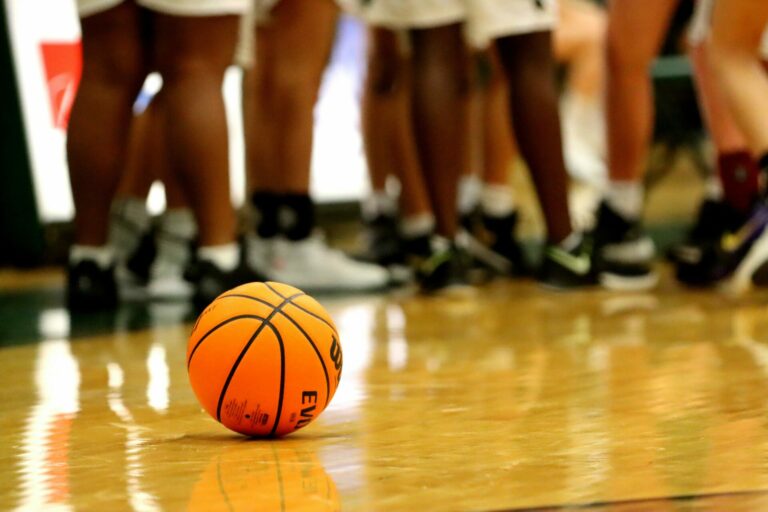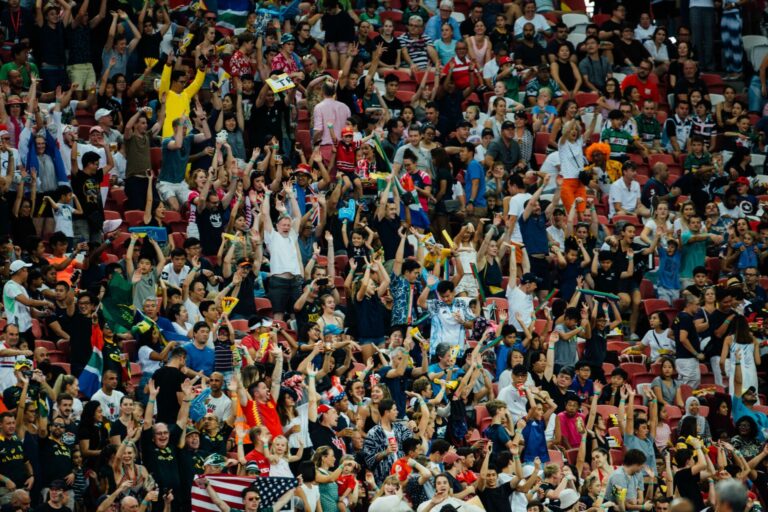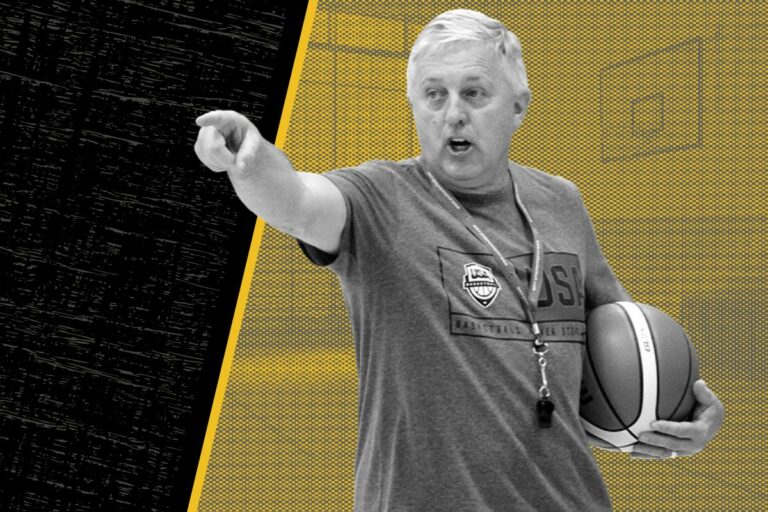Jacob Jarvis’ Special Olympics Leadership Lessons
- Encouraging students to take responsibility and ownership can help them become better leaders.
- Skills and academics are one thing, but coaching attitude often has a longer impact and is more rewarding.
- Control what you can control, and put your attention and energy into that instead of the things you can’t control.
We asked Coach Jacob Jarvis to share the most important leadership lessons he’s learned from working with disabled individuals—and how those lessons influence his unique leadership philosophy as a coach and educator.
Coach Jarvis is a special education instructor and the head basketball coach at Ivy Academy, a public charter school with a focus on scholarship, environmental stewardship, and volunteerism in Soddy Daisy, Tennessee. In 2017, Jarvis helped introduce the school’s first basketball program.
In addition to his duties at Ivy Academy, Jarvis is active in the Chattanooga functional needs community. Between his days volunteering with Special Olympics, Jarvis serves on the board of the Chattanooga Down Syndrome Society and works part-time at Therapeutic Recreation, an organization that provides recreational opportunities for Chattanooga residents of all abilities.
His work with these populations—including his sister, who has Down Syndrome—has shaped much of his leadership philosophy.
Early Inspiration
When I was a kid, I wanted to be three things when I grew up: I wanted to be a professional baseball player, I wanted to be a professional basketball player, and I wanted to coach my sister at the Special Olympics. Two of those things did not happen. But I got one of them.
My little sister is my sage. She is so positive and so upbeat. Nothing’s ever wrong. You just kind of pick that stuff up from the population that we work with at the Special Olympics.
We’ve learned a lot of leadership lessons about humility, life in general, and how to handle situations. They teach me how to put things in perspective, and what’s real. We talk about controllables and uncontrollables on the basketball court—what we can control and what we can’t control—and I feel like I have better strength in letting my team know, “listen, we gotta handle our business, we gotta do what we do,” based on my work with that population.
Special Education Became my Life Passion
Special education is actually my whole life. It’s my professional life because that’s the route I went in school. Because I work with individuals with disabilities, it’s my job. It’s my hobby because I coach Special Olympics and I work at an organization called Therapeutic Recreation in the city of Chattanooga. And because my little sister has Down Syndrome it’s also part of my personal life. So it’s what I do. It’s more of a lifestyle than it is anything else.
When my sister was born, I was 10, and she went to this therapy session at a place called Siskin Hospital. She’d go once a week and I’d go with her. After a couple of months, I’d get down and do the therapies and help the other kids. I fell in love with just helping. And so in high school, I made the decision I wanted to teach. I’m pretty lucky to have a passion a lot of people don’t. I consider myself very blessed in that area.
Jarvis’ unfiltered passion for coaching is why many leaders got into it in the first place. Share this article with your peers and reignite that passion Jarvis says people don’t have.
Bringing Basketball to Ivy Academy
I’ve been at Ivy Academy for three years. We are an environmental charter school. I work in special education and had previously worked at a different charter school here in town. I saw an incredible opportunity to do special education in this setting. The environmental side of this school is also what brought me over here—we have outdoor classrooms, a hiking trail, and a little creek that runs right next to the school. That, plus the opportunities for athletics in our future.
The school is out about 30 minutes from Chattanooga, and the students that come to the school actually come from all over the county. Besides the academics and the environmental aspect, we don’t really have athletics. But a lot of the community has really bought into this basketball program. They’re like, “Hey, we want this. We’re going to show that we want this.”
Leadership as a Daily Practice
Ivy Academy is such a small school that every student counts. We need leaders in this world; we need leaders in this building. That’s where it starts. Our biggest mantra is, “are you being a leader today?”
We talk a lot about having our athletes be leaders in the building, so we will finish a lot of practices with the cheer, “Leaders!” I try to tell them that face to face. People need to be told what they are so they can achieve it. We talk a lot about being a different type of student-athlete in the building and handling yourself in a different way.
The Value of Taking Ownership
In our first season, we lost every game. It was a little humbling, but one of the leadership lessons I took from that season was to try to be positive. So, right, you lose every game, where are the positives? What’s good about this? Here’s some good: attendance. Attendance was always through the roof. Everyone shows up.
I can’t be the one to tell my team whether they are successful in this game or not. Only they can tell themselves that they are successful. And once they take that ownership themselves, it changes their outlook. Give somebody a job, a responsibility, and give them the support they need to handle that responsibility appropriately, and it changes the platform.
In his book At Ease: Stories I Tell to Friends, Dwight D. Eisenhower talks about how when he was little, his job was to put the forks on the table. And if he didn’t put the forks on the table, they would have the whole spread up there at the table and just sit there. Nobody could eat because he didn’t put the forks there—suddenly that small job he didn’t do wasn’t that small in comparison. So we do different things, like, “Hey, you need to carry the bags today,” or, “If you don’t bring the basketballs over here, we can’t practice, so you’ve got a big job.”
Don’t let anyone fall through the cracks, and if it looks like they will,
work harder to try to pick them up.
The Difference is Attitude and Effort
The biggest thing with my leadership philosophy is attitude and effort. I can teach skills, I can teach academics, but if I can get attitude and effort right, then I’ve got somebody for a lifetime. That’s another one of the leadership lessons I’ve learned from the Special Olympics athletes I work with, and most of all, from my sister. Sometimes a problem isn’t as big as how we handle the problem. Sometimes a situation isn’t as bad as actually how we handle that situation. And so we try to focus on handling the situation and our attitude.
As my man, John Wooden says, “We measure success by effort.” So going back to the controllables, what we can control and what we can’t control, at the end of the game, if you gave 100% of your effort, then you’re successful. The score doesn’t matter.
If that’s all you can give, that’s all you got. It’s all about if they can take that attitude mindset and translate it into their schoolwork, translate it into their job. Then coaches don’t know how good of a job they’ve done coaching until 10 or 20 years down the road.
That’s the biggest thing: Taking that success mindset off the court and applying it to life.
Learn more about Jacob Jarvis and his work at Therapeutic Recreation, or volunteer with a Special Olympics program near you.











